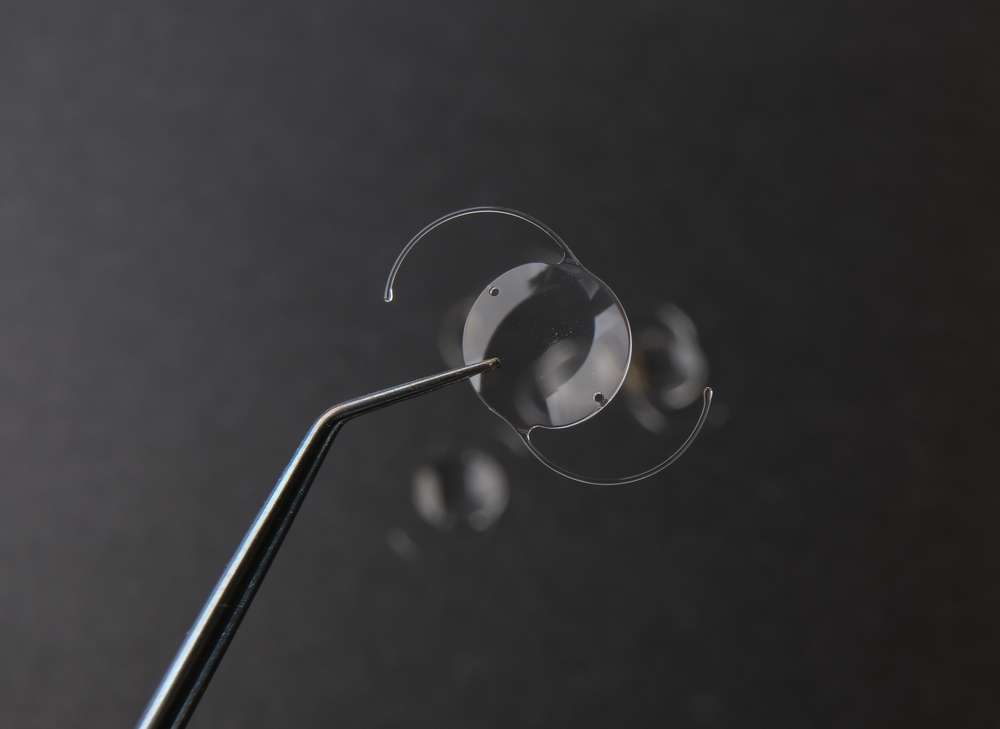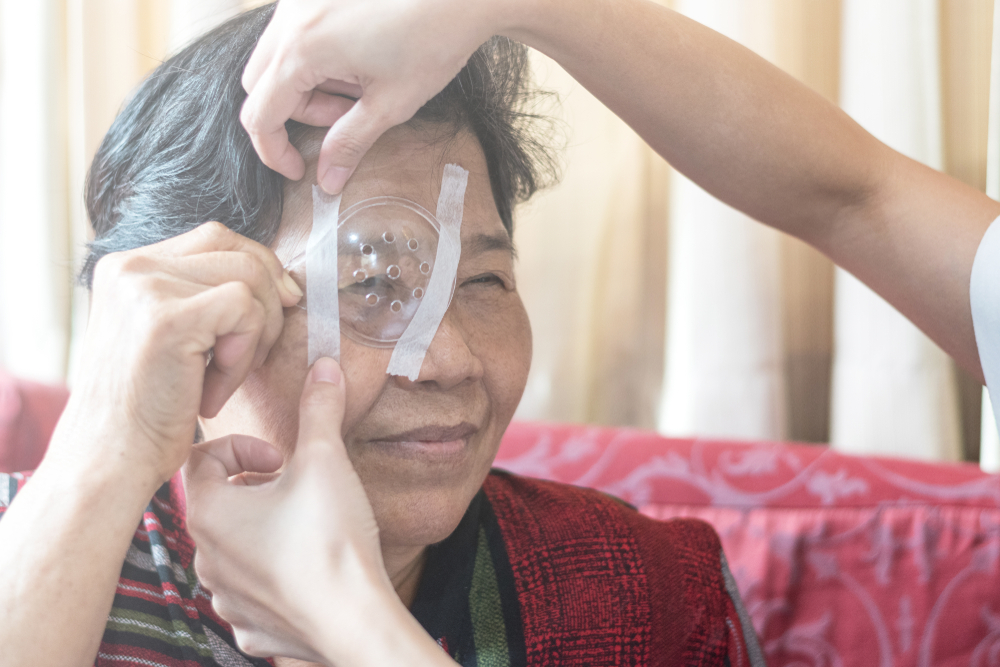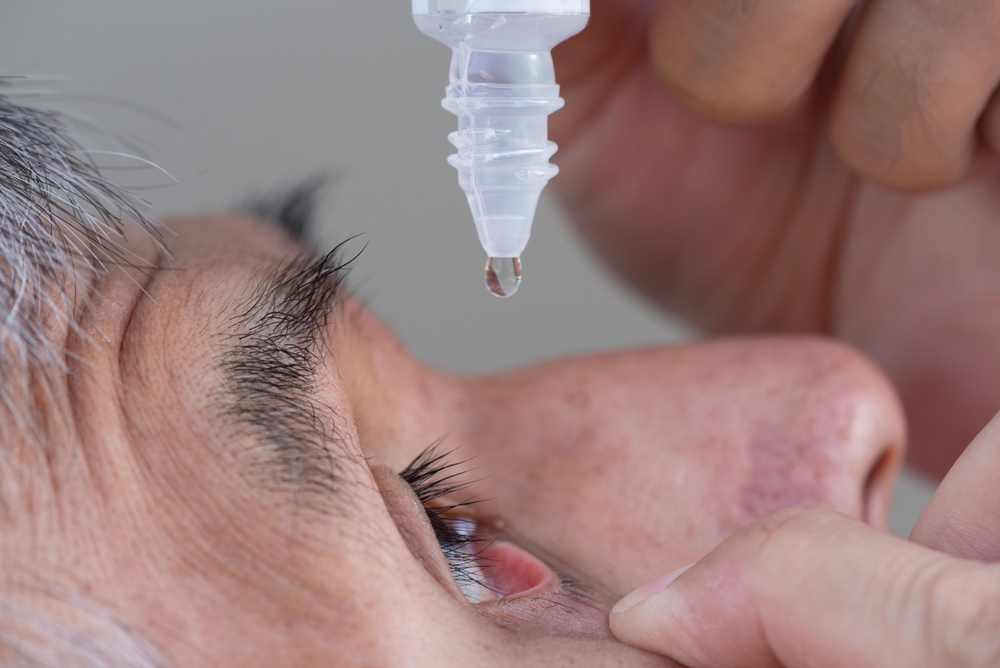What to Expect During Cataract Surgery
April 24, 2024
Cataract surgery is a safe and effective treatment that can restore vision for those with cataracts. However, the idea of eye surgery can be stressful.
Understanding what will happen before, during, and after cataract surgery may ease some of your concerns about the procedure. Keep reading to learn what to expect during cataract surgery!
Before Cataract Surgery: Choosing a Replacement Lens
There is no way to make the natural cataract-affected lens crystal clear again. Instead, during cataract surgery, your eye doctor will remove the clouded natural lens of the eye and replace it with an artificial lens called an Intraocular Lens, also called an IOL.
The new lens will be perfectly clear, so you will no longer have the symptoms caused by a cloudy natural lens. In addition, IOLs can correct refractive errors, such as astigmatism or nearsightedness.
Before cataract surgery, your eye doctor will discuss your IOL options and help you determine which may be best for you.
 The three main types of IOLs are:
The three main types of IOLs are:
Monofocal: Standard monofocal IOLs can correct vision at one distance range, either near, intermediate, or far. People commonly select to have clear distance vision and then use glasses for close vision, such as reading.
Multifocal: Multifocal lenses can correct vision at multiple distances. This means that if you choose a multifocal IOL, you will be able to have greater visual freedom after cataract surgery.
Toric: These lenses correct astigmatism. If you have a certain amount of astigmatism, your eye doctor may recommend a toric IOL to reduce your dependence on glasses after cataract surgery.
Do you think you may be experiencing cataract symptoms?
During Cataract Surgery: What to Expect
Cataract surgery is an outpatient procedure, meaning you will get to go home the same day. You will be awake for the whole procedure, which is usually very quick.
Before starting the procedure, your eye doctor will give you numbing eye drops so you don't feel any discomfort. Once your eye is numb, your eye doctor places an instrument that holds your eyelid open to prevent blinking.
 The instrument doesn't hurt, but you may notice pressure on your face and around your eye. During the procedure itself, your cataract surgeon will use specialized tools to make a small incision in the front surface of your eye.
The instrument doesn't hurt, but you may notice pressure on your face and around your eye. During the procedure itself, your cataract surgeon will use specialized tools to make a small incision in the front surface of your eye.
Then, they will gently break up the natural lens and remove it completely. Once the clouded lens is gone, your eye doctor will insert the IOL into the capsule that holds the natural lens.
Once the new IOL is positioned correctly, the procedure will be complete. The tiny incision on the surface of your eye will heal naturally without stitches during your recovery.
You'll be able to go home afterward, but you will need to arrange for someone else to drive you ahead of time.
Can I Have Cataract Surgery On Both Eyes At Once?
If you have cataracts in both eyes, you will probably need to plan on two separate surgery dates. Most eye doctors prefer to do cataract surgery on only one eye at a time.
This makes recovery easier for you. The eye that had cataract surgery will be adjusting to the new lens for two to three weeks after surgery.
Having both eyes compromised can make simple activities like showering or cooking very difficult. You can plan to have your second procedure a few weeks after the first.
After Cataract Surgery: Recovery
In the first few hours after cataract surgery, you shouldn't have too much discomfort. Your eye may stay numb for a little while before the drops wear off.
You'll need to wear a shield over your eye to protect it and prevent you from accidentally touching the area. Your eye doctor will tell you how long to wear the shield.
You may also need to wear it to bed for a few nights so you don't rub your eye in your sleep. For the first few days after surgery, you may notice that your eye is red and feels sore, itchy, or gritty.
This is normal as your eye is recovering from the procedure. Your eye doctor can give you drops to soothe discomfort. You may also need to use drops to prevent infection.
Any discomfort should get better as your eye heals. Your eye doctor will tell you when you can resume normal activities like driving and returning to work.
You may need to hold off on strenuous exercise for a few weeks. Complete recovery may take up to eight weeks.
Your vision will continue to improve as your eye heals.
Schedule a Cataract Evaluation
When Will I Notice Results From Cataract Surgery?
You will notice a change in your vision right after cataract surgery. The clouded lens may have been making your vision dimmer or causing a yellowing tint to everything.
The new, clear IOL will make your vision immediately brighter, and colors may seem more vivid. Your overall vision will improve in the first few days after cataract surgery and continue to get better over the next two or three months.
Your eye doctor can tell you more about what your recovery timeline will look like.
Do you think you need cataract surgery? Schedule a cataract evaluation at Carroll Vision Center in Westminster, MD, today!



